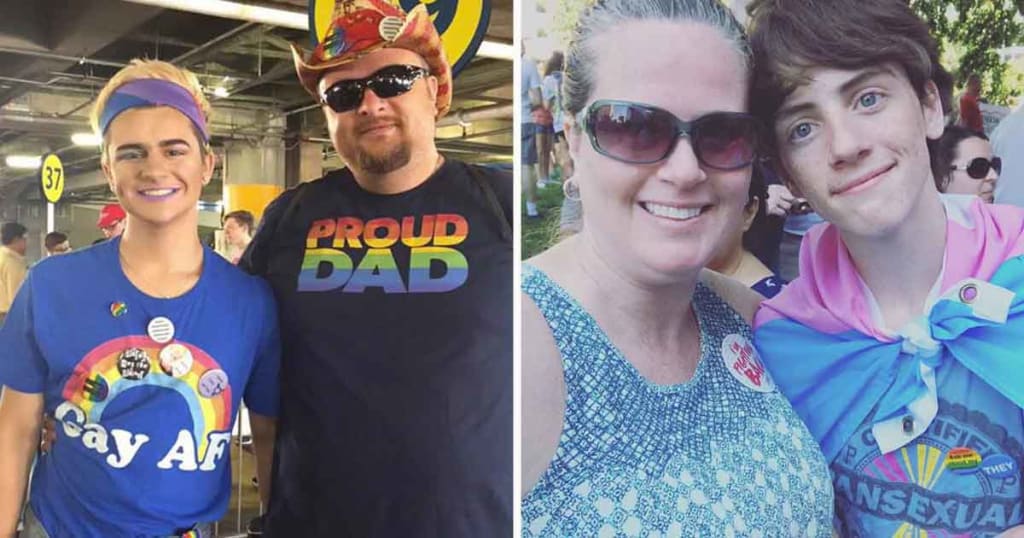Guide to Supporting Your LGBTQ+ Child
From a gay teen.

As Pride Month comes to an end, it is important to remember that queer pride should not just be reserved for one month of the year. LGBTQ+ pride needs to be 24/7, 365 days a year. The acceptance of queer and trans youth is especially important in the home and between family. For some parents, the thought of having an LGBTQ+ child may be difficult to understand, for others, it never even comes to mind until their child comes out. The fact is that queer and trans youth that are accepted by their families are much less likely to commit suicide, or suffer with depression surrounding their sexuality or gender identity. In general, acceptance increases thehappiness in the home, and in the child.
As a queer youth who has come out to their family and friends, and received both acceptance and criticism, I can say that I am much closer and happier with the family that has accepted me. My mom often says that she never imagined having a gay daughter, but she has no problem with it now that it has happened. I know that at first it was definitely a mind shift for her. For my whole life up until that point, she had pictured me getting married in a big white dress to a handsome groom in a sharp black tux. I knew that giving her time would help her adjust, and now we are closer than ever eight years later.
As someone who has come out to various people in my life, I can say the most helpful responses have been the simplest. A simple, "I love you no matter what," or "I'm so proud of you for being who you are," was the most appreciated response, even though they may sound cliche. In my experience, coming out makes a kid very nervous. It can sometimes be spontaneous, or take months of planning and calculation. No matter what situation your child is in, what way they come out, or what they identify as, the key is to reiterate unconditional love. Go by your child's lead. Ask them if you can ask questions, or if they feel comfortable talking about it. Sometimes they will be very open right away, and sometimes they will need a break. In this moment, a hug goes a long way.
It is okay if you feel you need time to process the new information, just make sure your child feels accepted and loved. This may not be the time to try and incite wisdom onto the child. Saying things like, "well you never know, you may change your mind," may seem true, but it's probably not the thing they want to hear in that moment. When they are ready to come out, remember that they have been thinking about this for a long time, and are probably very sure of their identity if they are at this point.
There are many ways your child may present this information. If a youth doesn't feel comfortable telling their parent out loud or saying the words, they may write a letter, text, or email. This is often much easier on the person. They can say what they need to say in a calculated and thought out manner. The same outlines apply; be compassionate, try and put yourself in your child's shoes, and imagine how they may be feeling. The last thing anyone needs in this moment is criticism or judgment.
One thing I have learned is that certain LGBTQ+ terms don't mean the same thing to everyone. For example, some people may use gay as a broad term, rather than strictly being interested in same-sex relationships. Again, ask questions and try and have an open discussion. If your child is unsure, that is okay too. As long as your questions are phrased compassionately, and not said in an accusatory or angry tone, they will usually be received with appreciation.
No matter how your child identifies, remember to offer and be willing to show your support, love, and acceptance. And hey, maybe even go a pride parade, they're a lot of fun! The best parents are supportive and loving parents. As long as you do those things, you will all be okay!
About the Creator
the.unstable.sibling
Sharing stories to reduce stigma and promote recovery.







Comments
There are no comments for this story
Be the first to respond and start the conversation.